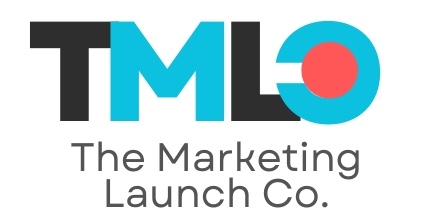One of the most prominent and disruptive forces in recent years is undoubtedly Artificial Intelligence (AI). With its ability to process vast amounts of data, identify patterns, and predict consumer behaviour, AI has transformed the way businesses approach their marketing strategies. However, like any revolutionary technology, AI in marketing is a double-edged sword, presenting both invaluable advantages and potential drawbacks that require careful consideration. Let’s delve into the world of AI in marketing, uncovering its pros and cons and exploring its impact on the industry.
Pros of AI in Marketing:
Data-Driven Insights: AI empowers marketers with data-driven insights that offer a deep understanding of consumer behaviour, preferences, and trends. Through sophisticated data analysis, AI can identify patterns and correlations that might elude human analysis, enabling businesses to make informed decisions and tailor their strategies accordingly.
Personalised Customer Experiences: By leveraging AI, marketers can deliver highly personalised and targeted experiences to individual customers. AI-driven algorithms can analyse customer data to create personalised recommendations and content, enhancing customer engagement and satisfaction, ultimately leading to improved conversion rates and customer loyalty.
Enhanced Efficiency and Automation: AI streamlines and automates various marketing processes, allowing marketers to focus on more strategic tasks. Automated email campaigns, chatbots for customer support, and predictive analytics for lead generation are just a few examples of how AI can significantly boost efficiency and productivity, saving both time and resources for businesses.
Real-Time Analytics: With AI-powered tools, marketers can access real-time analytics, enabling them to make immediate adjustments to their campaigns and strategies. This real-time feedback loop facilitates agile decision-making, ensuring that marketing efforts remain relevant and responsive to dynamic market conditions.
Improved ROI and Cost-Efficiency: AI can optimise marketing campaigns by targeting the right audience, minimising ad spend wastage, and maximising return on investment (ROI). By refining targeting and eliminating guesswork, businesses can allocate their resources more efficiently, leading to improved cost-effectiveness and higher profitability.
Cons of AI in Marketing:
Data Privacy Concerns: The collection and analysis of vast amounts of consumer data raise significant privacy concerns. Marketers must navigate stringent data protection regulations and ensure that consumer privacy remains a top priority to maintain trust and prevent potential data breaches or misuse.
Over-reliance on Automation: While automation can enhance efficiency, an overreliance on AI-driven automation might lead to a loss of the human touch in marketing. Building genuine relationships and understanding nuanced consumer needs may become challenging if businesses solely depend on AI without human oversight.
Algorithmic Bias and Misinterpretation: AI algorithms can exhibit biases based on the data they are trained on, leading to inaccurate insights and skewed targeting. Marketers need to be vigilant in monitoring and addressing any biases that might result in discriminatory or misleading marketing practices, potentially damaging brand reputation and customer relationships.
Initial Implementation Challenges: Implementing AI in marketing requires a significant initial investment in technology and talent. Businesses must be prepared to overcome integration challenges, train personnel to utilize AI tools effectively, and ensure that the infrastructure can support the demands of AI-driven marketing initiatives.
Technology Dependency Risks: Relying heavily on AI without a comprehensive understanding of its limitations and vulnerabilities can expose businesses to significant risks. Technical glitches, system failures, or cyberattacks targeting AI systems can disrupt marketing operations and compromise data integrity, leading to severe financial and reputational consequences.
AI has undoubtedly revolutionised the marketing landscape, offering unparalleled opportunities for businesses to streamline operations, enhance customer experiences, and drive growth. However, to leverage the full potential of AI in marketing, businesses must navigate the associated challenges with caution, addressing issues such as data privacy, algorithmic biases, and over-reliance on automation. By striking a balance between AI-driven insights and human intuition, businesses can harness the power of AI to craft more impactful and ethical marketing strategies that resonate with consumers and foster long-term relationships. As AI continues to evolve, its integration into marketing practices will undoubtedly shape the future of the industry, demanding a careful and responsible approach to ensure sustainable success and ethical engagement with consumers.


